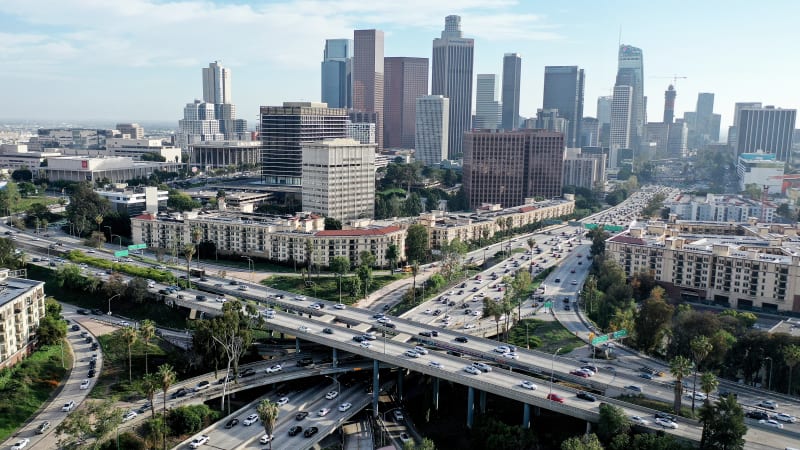California to implement its ban on new internal combustion cars by 2035

California on Thursday is expected to implement its plan, announced nearly two years ago, to ban the sale of new gasoline- or diesel-powered cars in the state by 2035.
The step comes on the heels of President Biden signing into law a sweeping federal climate change bill last week, which commits $370 billion to clean energy spending and tax credits. California’s ban was first outlined in an executive order from Gov. Gavin Newsom in September 2020. Now the California Air Resources Board (CARB) has voted to put it into effect.
“This is huge,” Margo Oge, an electric vehicles expert, told the New York Times. Oge headed the Environmental Protection Agency’s vehicle emissions program under Presidents Bill Clinton, George W. Bush and Barack Obama. “California will now be the only government in the world that mandates zero-emission vehicles. It is unique.”
Many other states follow California’s lead on matters of vehicle emissions, and 12 of them are expected to announce a similar policy soon; another five may take the step within the next year. And California itself is the largest automotive market in the nation.
Vehicle emissions are the nation’s top source of greenhouse gases.
California now mandates that 12% of vehicles sold in the state be free of greenhouse gas emissions. The new requirements will move that target to 35% by 2026, 68% by 2030 and 100% emissions-free by 2035.
The Alliance for Automotive Innovation represents large U.S. and foreign automakers. John Bozzella, president of AAI, told the Times that California’s new mandates would be “extremely challenging” to meet. “Whether or not these requirements are realistic or achievable is directly linked to external factors like inflation, charging and fuel infrastructure, supply chains, labor, critical mineral availability and pricing, and the ongoing semiconductor shortage,” Bozzella said.
Bozilla has been equally critical in recent days of the new requirements in the Biden administration’s new law regarding EV battery manufacturing and materials sourcing. By his calculation, very few EVs currently qualify for the $7,500 credit under the new law, and none currently would when more of the requirements are implemented on Jan. 1, 2023.
California was able to implement the new mandates because the Biden administration restored the “California waiver,” a Clean Air Act exemption giving California the legal authority to set its own vehicle emissions rules, after the Trump administration had tried to do away with the waiver. Newsom likewise issued an order last year directing CARB to ban the sale of new gas-powered lawn equipment, which is especially polluting.
Automakers have been split on accepting California’s right to set its own rules, but one of the biggest holdouts on the question, Toyota, just acknowledged the state’s authority on the matter.
Seventeen Republican state attorneys general have sued in an attempt to revoke the California waiver, so we haven’t heard the last word on this issue.



